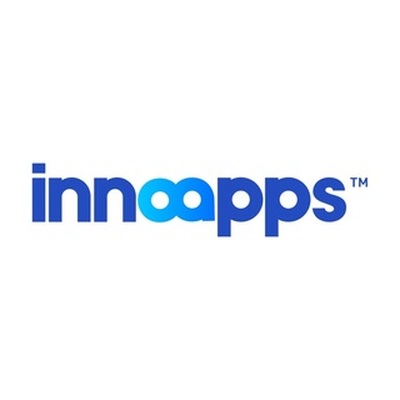Blockchain App Development: Innovating Solutions for the Digital Future
Publicado por InnoApps .
Cuerpo

In the ever-evolving landscape of technology, blockchain app development stands out as a beacon of innovation, offering transformative solutions that herald the dawn of a digital future. With its decentralized architecture and immutable ledger, blockchain technology has the potential to revolutionize industries, streamline processes, and empower individuals. In this comprehensive exploration, we delve deep into the exciting realm of blockchain app development, its underlying principles, diverse applications, and profound implications for the digital landscape of tomorrow.
Understanding Blockchain App Development
Blockchain app development represents the fusion of blockchain technology with software development methodologies to create decentralized applications (DApps) that leverage the unique features of blockchain networks. At its core, blockchain is a distributed ledger technology that records transactions across a network of computers in a secure and transparent manner. Each transaction, or "block," is cryptographically linked to the previous one, forming a chain of blocks that is immutable and tamper-proof.
The Fundamentals of Blockchain Technology
To comprehend the significance of blockchain app development, it's essential to grasp the fundamentals of blockchain technology. At its core, blockchain operates on principles of decentralization, transparency, and immutability. Decentralization ensures that no single entity controls the network, thereby enhancing security and resilience. Transparency enables all participants to view transactional data in real-time, fostering trust and accountability. Immutability ensures that once recorded, transactions cannot be altered or deleted, providing a verifiable record of truth.
Key Components of Blockchain App Development
Blockchain app development involves several key components and technologies that work in tandem to create decentralized applications. These include:
- Consensus Mechanisms: Consensus algorithms, such as Proof of Work (PoW) and Proof of Stake (PoS), enable network participants to agree on the validity of transactions and maintain the integrity of the blockchain.
- Smart Contracts: Smart contracts are self-executing contracts with predefined rules and conditions encoded on the blockchain. They automate and enforce the execution of contractual agreements without the need for intermediaries.
- Decentralized Storage: Decentralized storage solutions, such as IPFS (InterPlanetary File System) and Swarm, enable the storage and retrieval of data in a distributed manner, ensuring redundancy and fault tolerance.
- Cryptographic Encryption: Cryptographic techniques, such as public-key cryptography and hashing algorithms, are used to secure transactions, authenticate participants, and protect data privacy.
Applications of Blockchain App Development
The potential applications of blockchain app development are vast and diverse, spanning multiple industries and use cases. Some notable applications include:
- Finance and Banking: Blockchain-powered payment systems, remittance platforms, and decentralized finance (DeFi) applications are revolutionizing traditional banking and financial services, offering greater efficiency, transparency, and accessibility.
- Supply Chain Management: Blockchain enables end-to-end traceability and transparency in supply chains, allowing stakeholders to track the movement of goods, verify product authenticity, and ensure compliance with regulatory standards.
- Healthcare: In healthcare, blockchain facilitates secure and interoperable health data exchange, patient identity management, and drug traceability, enhancing patient privacy, data security, and healthcare outcomes.
- Identity Management: Blockchain-based digital identity solutions enable individuals to control and manage their digital identities securely, reducing identity theft, fraud, and data breaches.
- Voting Systems: Blockchain-powered voting systems ensure the integrity and transparency of electoral processes, enabling verifiable and tamper-proof voting records.
Challenges and Considerations in Blockchain App Development
Despite its transformative potential, blockchain app development faces several challenges and considerations that developers must address:
- Scalability: Scalability remains a significant challenge in blockchain technology, with limitations on transaction throughput and network congestion hindering mass adoption.
- Interoperability: Ensuring interoperability between different blockchain platforms and protocols is essential for seamless data exchange and collaboration across networks.
- Regulatory Compliance: Navigating regulatory frameworks and compliance requirements poses challenges for blockchain app developers, particularly in highly regulated industries such as finance and healthcare.
- Security: While blockchain offers inherent security benefits, ensuring the security of smart contracts, wallets, and decentralized applications requires robust cybersecurity measures and best practices.
Conclusion: Shaping the Digital Landscape of Tomorrow
In conclusion, blockchain app development holds immense promise in shaping the digital landscape of tomorrow. With its decentralized architecture, transparency, and immutability, blockchain technology offers transformative solutions that address trust, security, and efficiency challenges across various industries. From finance and supply chain management to healthcare and identity management, blockchain-powered apps are driving innovation, fostering collaboration, and empowering individuals and organizations in the digital age.
As pioneers in blockchain app development, we at InnoApps are committed to pushing the boundaries of technology and unlocking new possibilities for the digital future. Through our expertise in blockchain development, we empower businesses to harness the full potential of blockchain technology and navigate the complexities of the decentralized ecosystem with confidence and resilience. Together, let's pioneer the digital frontier and build a more transparent, secure, and inclusive digital world for generations to come.












Comentarios